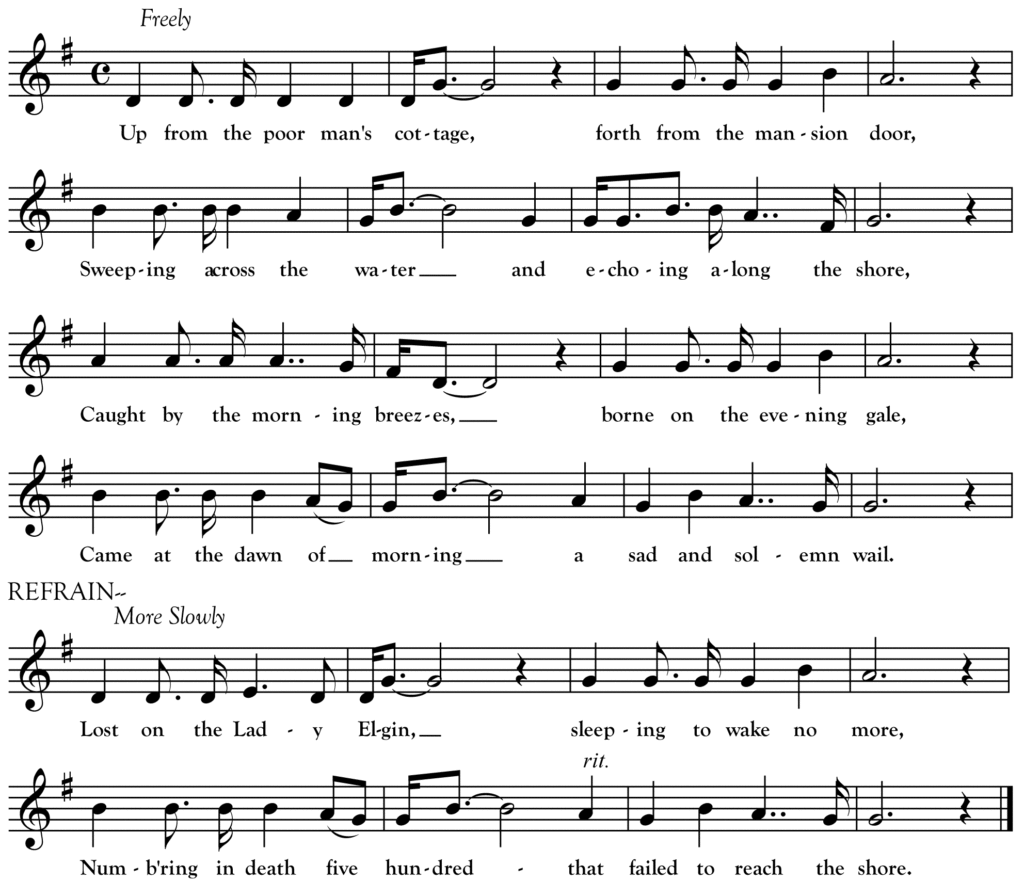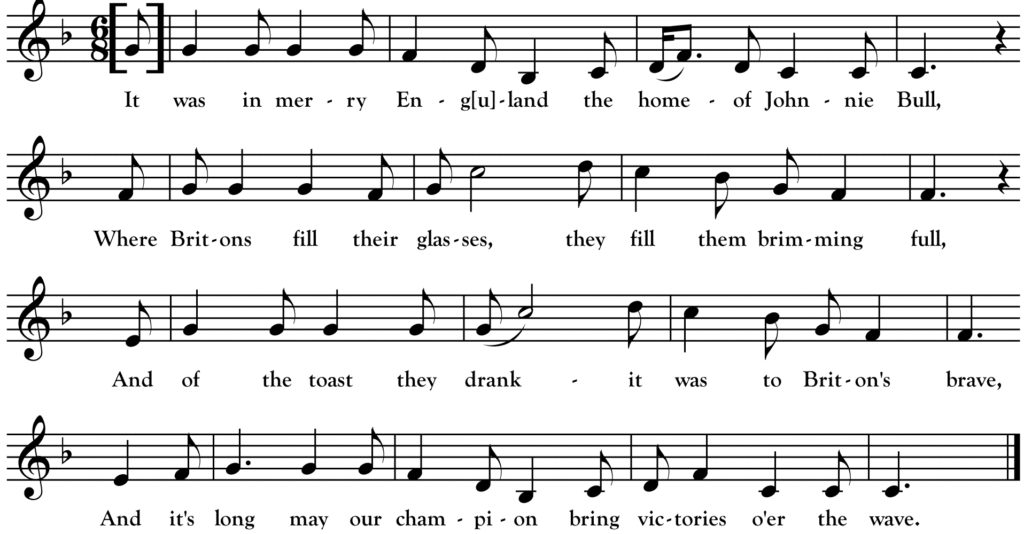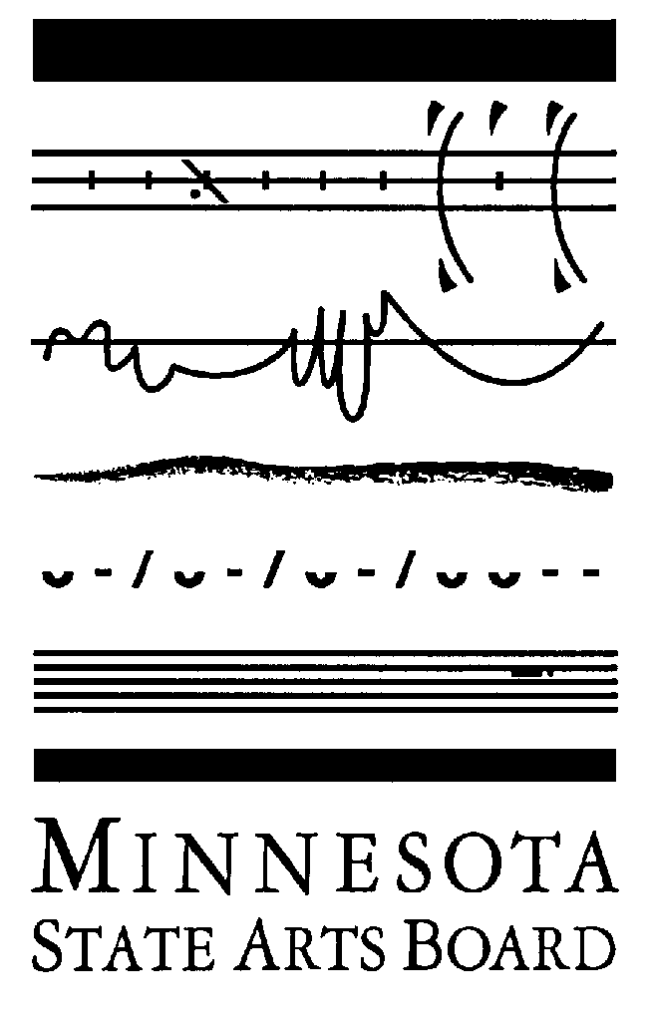Lost on the Lady Elgin (revisited)
Up from the poor man’s cottage, forth from the mansion door,
Sweeping across the water and echoing along the shore,
Caught by the morning breezes, borne on the evening gale,
Came at the dawn of morning a sad and solemn wail.
Refrain—
Lost on the Lady Elgin, sleeping to wake no more,
Numbering in death five hundred that failed to reach the shore.
Sad was the wail of children, weeping for parents gone,
Children that slept at evening, orphans woke at morn;
Sisters for brothers weeping, husbands for missing wives,
These were the ties that were severed by those five hundred lives.
Staunch was the noble steamer, precious the freight she bore,
Gaily they loosed their cables a few short hours before,
Proudly she swept our harbor, joyfully rang the bell,
Little they thought ere morning it would peal so sad a knell.
——————————-
We return this month to the song “Lost on the Lady Elgin” from the repertoire of Minnesota singer Michael Dean. The song depicts the outpouring of grief that followed the tragic sinking of the side-wheel passenger steamer Lady Elgin in Lake Michigan 156 years ago in September 1860. The ship’s loss struck a particularly painful blow to the Irish community of Milwaukee’s Third Ward as many of the doomed passengers hailed from that area. The Lost Forty was in Milwaukee ourselves last month for their annual Irish Fest and we videotaped our version of the song in the historic Third Ward on the banks of Lake Michigan.
Michael Dean’s older brother James came to Milwaukee around 1865 and lived in the Seventh Ward—just north of the Third. James Dean served a long career as conductor for the Milwaukee Railroad. It is possible that Michael learned the song during a trip to visit his brother though the song also travelled all around the US and Canada and was popular throughout the Great Lakes region especially.
Since I began singing “The Lady Elgin” I have met people who have stories about family members singing the song and, in the case of one audience member I met at the Minnesota Irish Fair last year, an ancestor who was lost in the wreck itself.





